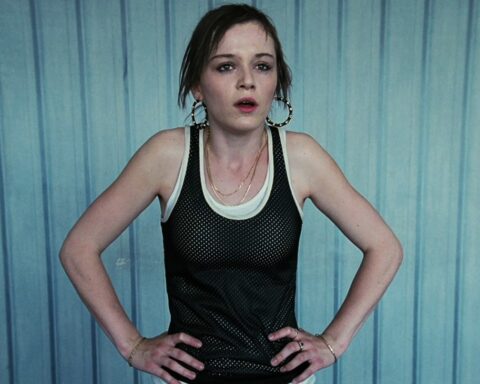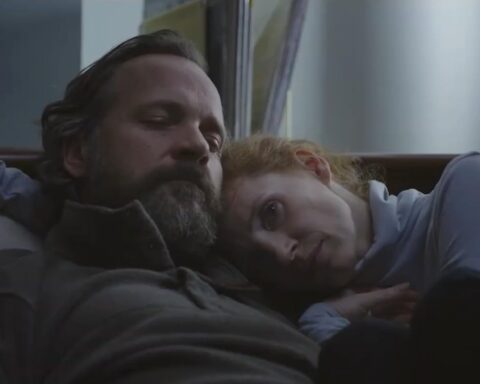Melk (2023)
“It is what it is”
Stefanie Kolk’s first feature film, “Melk,” which premiered at Venice, explores a unique way of coping with grief and mourning.
After giving birth to her stillborn baby, Robin’s breasts start producing milk a few days later. Despite the strange occurrence during her grieving process, she decides to channel the pain of her loss into a determination to be useful to others; by donating her milk to babies in need. However, her request is rejected by authorities due to a past illness, even though she is completely cured, and her milk is free of any bacteria. The rigid and illogical bureaucratic barriers in the Netherlands cannot divert Robin from her purpose, and the film essentially begins at this point.
While Robin’s insistence on donating her milk may initially seem obsessive, it becomes clear that this is a philanthropic mission that can alleviate her pain, reflecting her struggle with loss and grief. In the midst of the void created by her loss, and with maternal hormones still being secreted, she takes on a surrogate motherhood role with her milk. When the freezer starts filling up with milk, Robin’s suppressed pain begins to overflow, and she must grapple with it. Symbolically representing the lost motherhood slipping through her fingers, Robin cannot bring herself to spend even a drop of this precious liquid. By observing how she looks at the milk bottles, one can easily discern that she is transferring the love she couldn’t give to her lost baby into her milk. Her farewell to her baby is reflected in the heartbeats before giving her milk to a needy mother.
While avoiding showing her pain to the outside world at all costs, Robin wants to continue her life somehow. Her preference for silent therapy walks aligns with her own silence, no matter how much turmoil rages within.
The dominant white, icy atmosphere in the film complements the chosen numbness of the character and the silent mourning of her pain. The deliberately minimalist music accompanies the characters with respect, rather than dramatizing the pain. The film avoids exaggerated dialogues and overblown behavioral reactions (except for a scene where family members cry together), touching the audience quietly as grief unfolds naturally.
Director Stefanie Kolk’s original screenplay, inspired by a personal story, combined with Frieda Barnhard’s commendable performance, delivers an impressive debut film. The young director’s future projects are now a subject of curiosity.
Watched it at IFFR
by Nil Birinci






